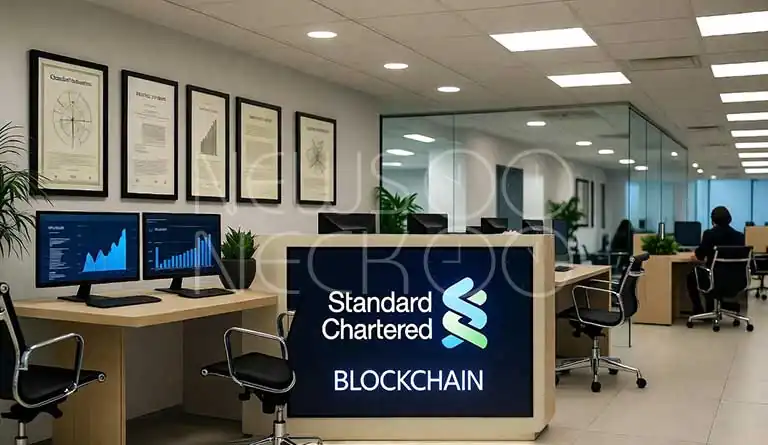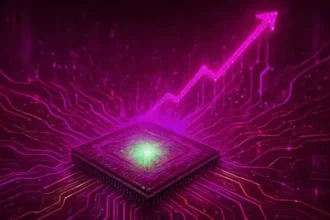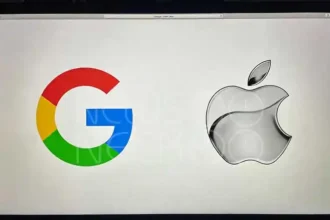Banking Giant Predicts Revolutionary Change: Your Money Could Soon Live on Blockchain
Imagine a world where every dollar you spend, every payment you receive, and every financial transaction you make happens on a digital system that nobody can secretly change or control. This might sound like science fiction, but according to one of the world’s most powerful banking leaders, this future is not just possible it is inevitable.
Bill Winters, the chief executive officer of Standard Chartered, one of the largest and oldest banks in the world, made a stunning prediction this week. Speaking to a crowd of financial experts and technology leaders in Hong Kong on Monday, Winters said he believes that almost every financial transaction on Earth will eventually happen on blockchain technology.
What Does This Really Mean?
Before we dive deeper into this revolutionary prediction, let us understand what blockchain actually is. Think of blockchain as a special digital notebook that records every transaction. But unlike a regular notebook that one person controls, this digital ledger is shared across thousands of computers around the world. Nobody can secretly erase or change what is written in it. Everyone can see the records, making the system transparent and secure.
Currently, when you transfer money to someone, banks and other financial companies handle everything behind the scenes. They keep their own private records, and you trust them to move your money correctly. Winters is saying this entire system will transform completely. Instead of banks keeping secret records, all transactions will be recorded on these shared digital ledgers that everyone can verify.
“Our belief, which the leadership of Hong Kong shares, is that pretty much all transactions will settle on blockchains eventually, and that all money will be digital,” Winters explained during his appearance at Hong Kong FinTech Week, a major gathering of financial technology experts.
He described this change as nothing less than “a complete rewiring of the financial system.” These are not small words coming from someone who runs a bank that operates in dozens of countries and handles trillions of dollars every year.
You Might Like it: How Blockchain in Fashion Weaving a New Story, Starting on a New Zealand Farm
Why Should Regular People Care?
You might wonder why this matters to someone who just wants to pay their bills, buy groceries, or send money to family members. The answer is that this transformation could change everything about how money works in our daily lives.
Right now, sending money across borders can take days and cost significant fees. Banks need time to verify transactions, communicate with other banks, and update their records. With blockchain technology, these same transactions could happen in seconds and cost much less because the technology eliminates many middlemen.
Imagine buying something from a store in another country and having the payment complete instantly, with full security, and with fees so small you barely notice them. Or picture receiving your salary and being able to use it immediately without waiting for your bank to process the deposit. These scenarios could become normal life in the blockchain-powered future that Winters envisions.
Standard Chartered Is Already Building This Future
Winters is not just talking about theoretical possibilities. His bank is actively working to make this vision real. Standard Chartered, which has headquarters in London but does significant business throughout Asia, has been rapidly expanding its involvement with digital assets over the past few years.
The bank now offers services that help customers store digital currencies safely. It operates trading platforms where people can buy and sell these new forms of money. Most importantly, it is working on creating “tokenized” versions of traditional financial products.
Tokenization is another concept worth understanding. When something is tokenized, it means creating a digital version of a real-world asset that can be traded on blockchain systems. For example, instead of owning a physical stock certificate or having your ownership recorded in a company’s private database, you would own a digital token that represents that stock. This token lives on the blockchain where everyone can verify that you own it.
Standard Chartered is particularly focused on creating something called stablecoins. These are digital currencies designed to maintain a steady value by being connected to regular money like the US dollar or Hong Kong dollar. Unlike cryptocurrencies such as Bitcoin, which can change dramatically in value from day to day, stablecoins aim to stay stable, making them more practical for everyday use.
The bank is partnering with Animoca Brands, a major investor in blockchain companies, and HKT, a telecommunications company, to launch a stablecoin backed by Hong Kong dollars. This project operates under new regulations that Hong Kong introduced in August to encourage safe development of digital currencies.
Hong Kong Wants to Lead This Revolution
Winters praised Hong Kong for taking a leadership role in experimenting with these new technologies while also creating smart regulations. The city has been working hard to become a major center for cryptocurrency and blockchain innovation in Asia.
Hong Kong’s government has launched special programs to test how tokenization can work in real markets. Standard Chartered is participating in these experiments, helping to figure out what works and what needs improvement.
Paul Chan, Hong Kong’s Financial Secretary, joined Winters at the panel discussion, showing that government leaders share the vision of a blockchain-powered financial future. This cooperation between private banks and government regulators suggests that the transformation Winters predicts might happen faster than many people expect.
Other Leaders See the Same Future
Winters is not alone in his bold predictions. Other influential figures in finance and technology have recently made similar statements about tokenization and blockchain.
Vlad Tenev, the chief executive of Robinhood Markets, a popular investment platform, said last month that tokenization is like “a freight train” that will reach most major markets within the next five years. His comparison to an unstoppable train suggests this change will happen whether traditional institutions are ready or not.
Even more striking, Larry Fink, who runs BlackRock the world’s largest money management company controlling trillions of dollars declared in April that every asset from stocks to bonds to real estate can be tokenized. He called this coming change a “revolution” for investing.
When leaders managing this much money and influence all point toward the same future, people should pay attention.
Questions About the Journey Ahead
While this future sounds exciting, many questions remain unanswered. Winters himself acknowledged that much experimentation is still needed to figure out exactly how this “complete rewiring” will work.
How will governments regulate these new systems? What happens if something goes wrong with the technology? Will everyone have equal access to these digital financial tools, or will some people be left behind? These are serious questions that need answers as the financial world transforms.
Security is another major concern. While blockchain technology offers strong protection against fraud and tampering, the systems built on top of it can still have vulnerabilities. As more money moves onto these digital platforms, they will become bigger targets for criminals and hackers.
The Big Picture
Whether you find this vision exciting or concerning, one thing seems clear: major changes are coming to how money works. The leaders of some of the world’s most important financial institutions are not just talking about these changes they are actively building them.
For regular people, this transformation will likely happen gradually. You probably will not wake up one day and find that all your money has suddenly moved onto a blockchain. Instead, you will likely see new options appearing alongside traditional banking services. Maybe your bank will offer a digital wallet for stablecoins. Perhaps you will start receiving some payments through blockchain systems without even noticing the difference.
The future that Bill Winters describes might take years or even decades to fully arrive. But if he and other financial leaders are correct, the way your grandchildren handle money could be as different from today as today’s digital banking is from the cash and paper checks that your grandparents used.
The revolution in finance has begun, and the world’s biggest banks are leading the charge into this digital future.
Author: Yasir Khan
Date: 03 Nov, 2025
For More Updates, Visit Newsneck














One Comment
I don’t think the title of your article matches the content lol. Just kidding, mainly because I had some doubts after reading the article.